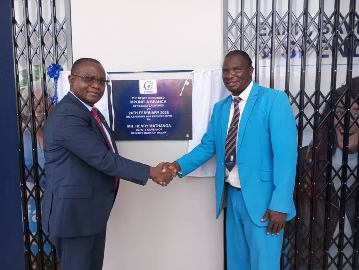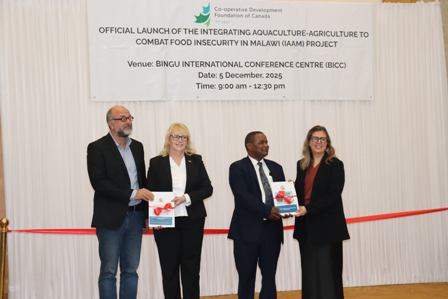Organisational Culture: The Hidden Driver of SACCO Performance and Employee Satisfaction - By Leroy Dickson Banda
Organizational culture is emerging as a critical lever for performance, satisfaction, and strategic alignment within Malawi’s SACCO sector. According to the Head of Cooperatives Development at MUSCCO, culture is best understood as “a system of shared meanings and common beliefs held by organizational members that determines, in a large degree, how they act towards each other.”
For culture to truly exist within an organization: It must be shared by the vast majority of members, transmitted across generations, shaping behavior and perceptions and it should be visible in daily interactions, decision-making, and problem-solving.
On the relationship between culture and employees Banda hinted that organizational culture is not just a backdrop—it’s a dynamic force that: Shapes employee identity, influencing how staff relate to their work and each other, is co-created by employees, who both reflect and reshape the culture through their actions and Impacts motivation, engagement, and retention, especially when aligned with shared values.
Banda allude to the fact that culture Influences Organizational Outcomes, he emphasizes that a strong culture manifests in: How the organization treats employees, customers, and the community, the level of autonomy and freedom in decision-making and innovation, the flow of power and information across the hierarchy and the depth of employee commitment to collective goals.
To cultivate a resilient and performance-driven culture, SACCOs must: Promote a common behavioral style across managers and staff, align on problem-solving approaches, stakeholder engagement, and goal-setting, establish shared norms that guide rewards, discipline, and recognition and recognize that a strong culture fosters stability, which in turn supports strategic success.
In conclusion, while applauding culture’s role in driving business results, MUSCCO’s Head of Cooperatives Development cautions SACCO leaders: “It only takes a cultural audit to differentiate which elements of the culture lead to superior performance.” This underscores the need for intentional reflection, measurement, and adaptation of cultural practices. If your culture is stuck in compliance, you will not win in the age of flexible, purpose-driven work



